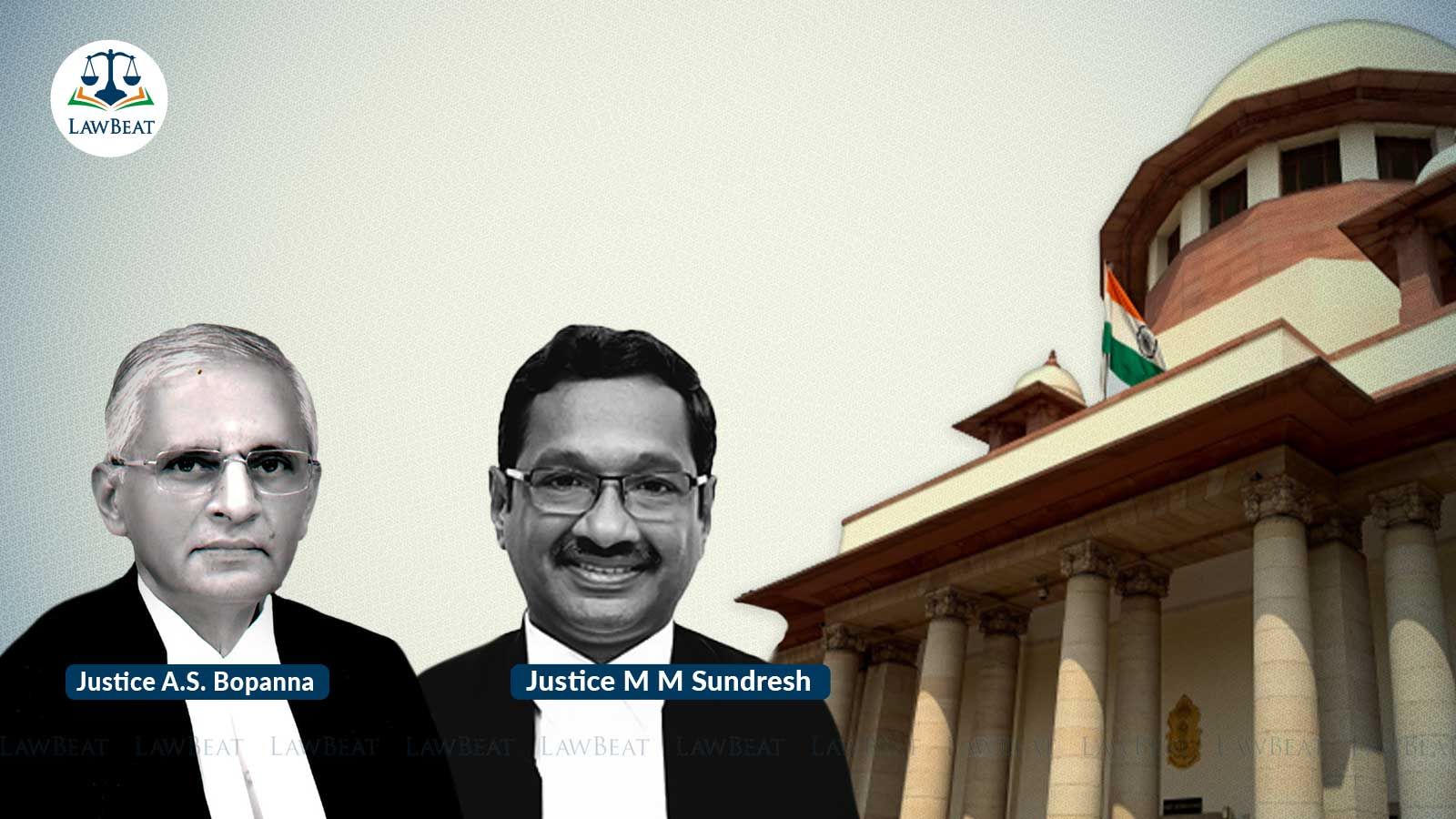Two Supreme Court judges recuse from hearing Pennaiyar river water dispute

As Justice Bopanna and Justice Sundresh hail from Karnataka and Tamil Nadu respectively, they expressed their inability to hear the plea and directed that the same be placed before the CJI for constituting an appropriate bench.
Justices AS Bopanna and MM Sundresh of the Supreme Court today recused from hearing the plea on the Pennaiyar river water dispute.
The judges orally said today, in a lighter vein, that they may start fighting with each other if they were to deal with the dispute.
This statement was made in the backdrop of Justice Sundresh, hailing from Tamil Nadu, Justice Bopanna, being from Karnataka.
Centre has recently informed the Supreme Court that a proposal set up by the Pennaiyar Water Dispute Tribunal, to resolve water sharing issues between Tamil Nadu and Karnataka has been sent to Cabinet Secretariat and is awaiting its final decision by the Union Cabinet.
In an affidavit, the Water Resources department of Jal Shakti Ministry stated, "in order to constitute a Tribunal, a proposal for formation of Pennaiyar Water Dispute Tribunal under the relevant section of the Inter State Water Dispute Act, 1956 has been submitted to Cabinet Secretariat for consideration and approval of Union Cabinet. It is submitted that the Union Cabinet is yet to take a final decision in the matter."
Hearing an original suit filed by Tamil Nadu, the top court had on May 2, 2023 granted the Union government one month's further time for setting up the tribunal and issuance of a gazette notification for it.
In its plea filed under Article 131 of the Constitution, Tamil Nadu had claimed plaintiff and defendant (State of Karnataka) are the two riparian States among the three basin States and the Union Territory of Puducherry in which the Inter-State River Pennaiyar flows.
As a riparian State, the plaintiff is entitled to and has been using the waters of the river Pennaiyar and its tributaries/rivulets, etc, except for the reasonable beneficial use of Karnataka. The extent of the rights of the Party States, in the use, control and distribution of waters of the Inter State River, is recognised in an agreement of 1892 entered into between the then State of Madras and Mysore, the predecessor States of Tamil Nadu and Mysore / Karnataka respectively.
However, its rights and interest in river Pennaiyar and its tributaries have been prejudicially affected by the executive action of Karnataka by its various works, and in violation of 1892 and 1933 agreements.
It alleged that Karnataka has taken up construction of a reservoir across Markandeyanadhi, a tributary of Pennaiyar, diversion of surplus waters of Varathur tank, implementation of lift irrigation scheme at Yellamallappa Chetty tank, pumping of water at Belahalli, besides a scheme to pump the waters of Pennariyar from Thattanur village to distribute to 160 tanks.
On November 14, 2019, the Supreme Court permitted the Tamil Nadu government to invoke the powers of the Union government in terms of the provisions of the Inter-State Water Disputes Act and seek the constitution of a tribunal on the dispute over sharing of water.
Case Title: The State of Tamil Nadu vs. State of Karnataka & Anr.
